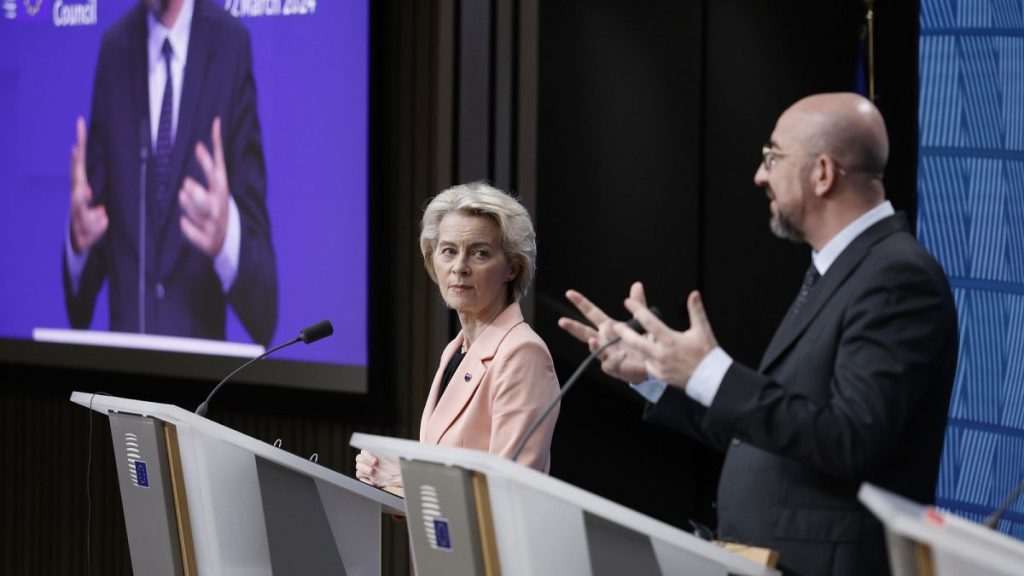Ukraine is set to potentially receive €1 billion in windfall profits from Russian assets that are immobilized in EU member states, following a proposal endorsed by the bloc’s 27 leaders. The majority of these profits would be allocated towards arming and equipping the Ukrainian armed forces as they defend against Russia’s aggression. European Commission chief Ursula von der Leyen emphasized the importance of swift action to disburse the funds, with the possibility of the first billion being released as early as July 1st. A plan has been outlined to allocate 90% of the proceeds through the European Peace Facility for arms donations to Ukraine, with the remaining 10% going towards post-war reconstruction efforts.
The approval of the proposal came despite concerns from some militarily non-aligned countries in the EU, such as Austria and Ireland, that prohibit the provision of lethal weapons to conflict parties. Leaders have indicated their willingness to support Ukraine, with Austria’s Chancellor Karl Nehammer emphasizing the need for safeguards to ensure that contributions are not used for military purposes. Ireland’s Leo Varadkar reiterated his country’s commitment to stand by Ukraine despite its military neutrality. The decision to tap into Russian assets, despite the European Central Bank’s reservations about potential impacts on the euro’s credibility, signals a departure from past practices to meet Ukraine’s military needs on the battlefield.
Approximately €210 billion in Russian central bank assets have been immobilized in the EU since the full-scale invasion of Ukraine in 2022, mainly at the Euroclear financial depositary in Belgium. While there are legal risks involved in accessing these funds, German Chancellor Olaf Scholz emphasized that the income from these assets can be utilized for Ukraine’s defensive struggle and acquisition of necessary weapons and ammunition. Belgian Prime Minister Alexander de Croo has already allocated the generated corporate taxes from the interests accumulating at Euroclear to Ukraine, highlighting the importance of a stable legal framework for sending the interests. The priority is to use the proceeds to purchase ammunition for Ukraine to support its defense efforts on the ground.
The EU has faced criticism for falling short of its target to provide one million rounds of ammunition to Ukraine, delivering only half of the promised amount. This shortfall, combined with decreasing support from the US, has been a setback for Ukrainian forces on the front lines. Ukrainian President Volodymyr Zelenskyy expressed disappointment with Europe’s response, highlighting the need for more assistance to address ammunition shortages that are impacting battlefield outcomes. In response to these gaps, member states have initiated independent efforts to support Ukraine, with several countries participating in schemes to provide additional ammunition. Sweden has pledged €30 million, while Portugal has committed €100 million to contribute to Ukraine’s defense needs.
The decision to tap into immobilized Russian assets to support Ukraine’s military efforts underscores the EU’s determination to bolster the country in its conflict with Russia. Despite some internal resistance and legal challenges associated with accessing these funds, EU leaders have shown solidarity with Ukraine and a commitment to providing the necessary resources for its defense. The allocation of windfall profits towards arms donations and reconstruction efforts reflects a strategic focus on strengthening Ukraine’s capabilities in the face of ongoing aggression. The EU’s response, along with contributions from individual member states, highlights a collective effort to stand by Ukraine and address critical needs on the ground as the conflict continues.















